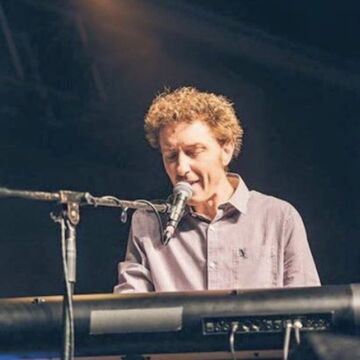

Andrew Lindsay
Associate Professor, Adjunct
Contact
Bio
Assistant Professor, Adjunct, Liberal Arts (2008). Education: BA, 1999, University of Toledo; MAE, DePaul University, 2007. Concurrent Position: Founding member, Allison Russell Music, Birds of Chicago, Dim Star; vocals, keyboards, production; Music: Outside Child (Allison Russell/Fantasy Records), Real Midnight (Birds of Chicago/Signature Sounds). Papers: "Those Who Lecture Us About the Method of Protests Don’t Really Care About Racial Justice” – Paste Magazine, October 2016, “CeeLo Green on Having An Inspiration That Scares You” –Paper Magazine, July 2016.
Allison Russell, Nightflyer, Music Video on YouTube